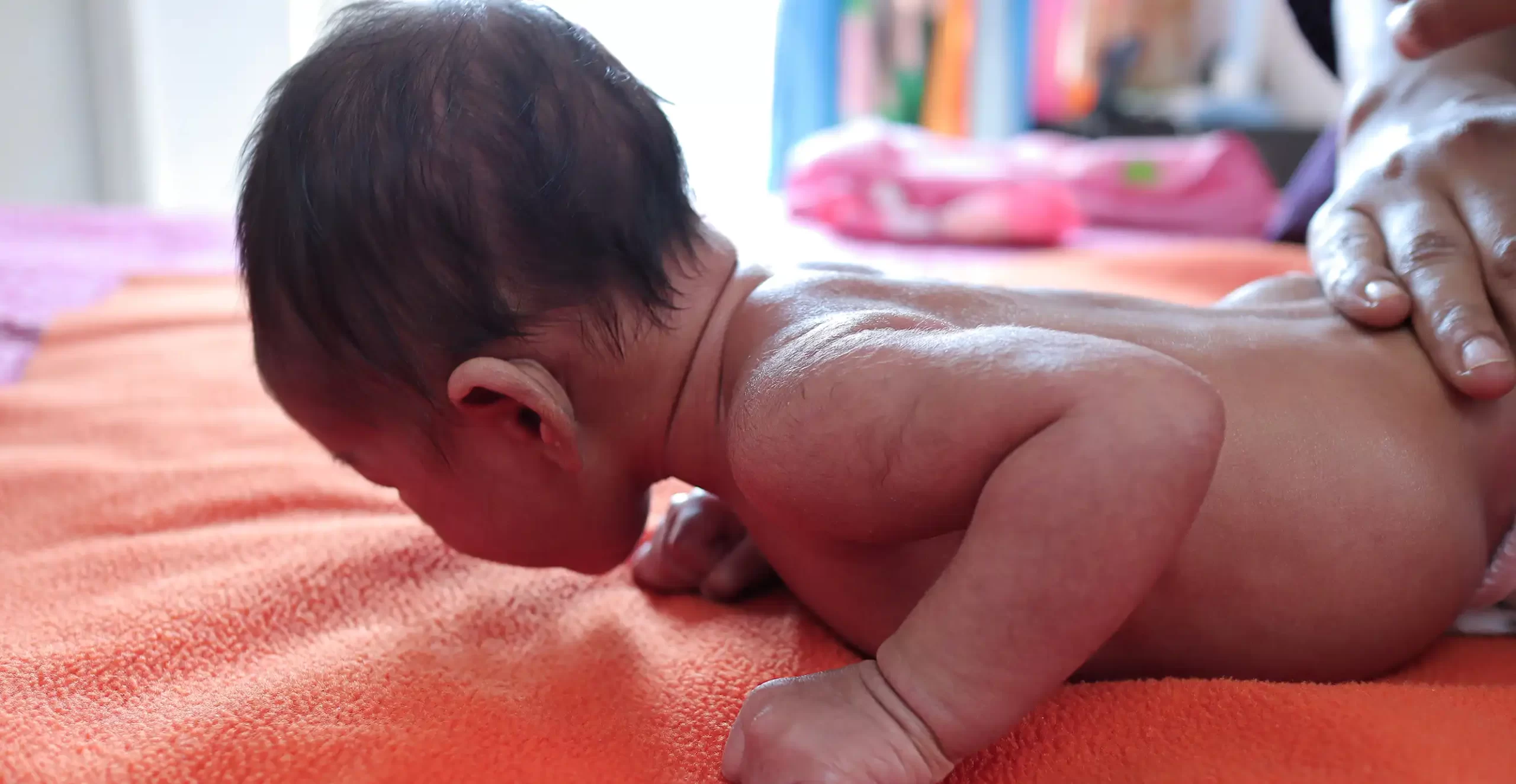Every milestone in your baby’s growth is a marvel. So, if you’re concerned that your little explorer hasn’t started walking yet, don’t worry – the journey is just as incredible, and those first steps are a masterpiece in the making.
Our blog today is your go-to guide for nurturing those wobbly strides into confident steps.
When do Babies Start Walking?
The average age for babies to start walking is 12 months, but some babies may start walking earlier or later. There is a wide range of normal when it comes to when babies start walking, so don’t worry if your baby doesn’t start walking until they’re 15 or 16 months old.
It’s quite common for new parents to wonder, “At what age does a baby start walking?” However, instead of fixating on that conundrum, redirect your attention to these smaller milestones.
Can your baby stand up without help?
Are they cruising around furniture?
Do they display good balance and coordination?
Are they showing interest in walking and seem eager to try?
If you answered yes to any of these questions, it’s time to start putting some pep in their step! We will tell you how.
Stronger the Core, the Sooner the Walk!
One of the most important things you can do to help your baby learn to walk is to make sure they have a strong core. The core muscles are the muscles that support the spine and pelvis, and they are essential for balance and coordination.
You can help your baby strengthen their core by doing tummy time, playing on the floor, and holding them in a standing position. You can also give them toys to hold onto while they’re standing, which will help them work their core muscles.
Take Those Shoes off!
Walking barefoot helps babies develop their balance and coordination. It also helps them feel the ground beneath their feet, which can give them more confidence when they’re first starting to walk.
If you’re worried about your baby getting dirty, you can put socks on them. But try to take them off as often as possible so they can feel the ground.
They Now Need a Sidekick!
When your baby is first starting to walk, they may need some support. You can hold their hands, put them in a baby walking chair, or use a harness.
It’s important to give your baby just enough support so they can feel confident, but not so much support that they don’t have to work for it. The more they have to work, the stronger their muscles will become and the sooner they’ll be able to walk on their own.
How to Teach Baby to Walk
• Start with short practice sessions. Don’t try to wear your baby out by making them practice walking for too long at once. Start with short sessions of 5-10 minutes, and gradually increase the amount of time as your baby gets better at walking.
• Make it fun! Babies are more likely to learn if they’re having fun. So, make sure to incorporate some games and activities into their practice sessions. You can play “Simon Says” or “Follow the Leader,” or you can create an obstacle course for them to navigate.
• Make sure your baby is dressed in comfy clothes. Think loose-fitting outfits that give them plenty of wiggle room. And oh, don’t forget to team them up with Snuggy Baby Diapers – they’re perfect for those early walking adventures. Take a peek at our super cute range of baby diapers online!
• Be a good role model. Babies learn by watching the adults in their lives, so make sure to walk around yourself so that your baby can see you.
• Praise your baby’s efforts. When your baby takes a step or two, be sure to praise them and let them know how proud you are of them. This will help them feel motivated to keep practicing.
Enjoy your baby’s wobbly little triumphs while you can. Before you know it, they will be running around the house and climbing on furniture. As always, we’ll be here to help you every step of the way. Thanks for reading!
Frequently Asked Questions
What food helps babies walk?
While there isn’t a specific food that directly helps babies walk, providing a balanced and nutritious diet is essential for their overall development. Foods rich in calcium, vitamin D, protein, and other essential nutrients contribute to healthy bone and muscle growth. Dairy products, leafy greens, lean meats, fish, eggs, and fortified cereals are good choices to include in your baby’s diet.
What is a normal age for a baby to walk?
Babies typically start walking between 9 to 12 months of age. Some babies may start walking as early as 8 months, while others may take their first steps closer to 15 months. Each baby develops at their own pace, so it’s important to be patient and supportive.
Why do babies walk late?
Walking is a complex milestone that depends on various factors, including a baby’s muscle strength, balance, coordination, and temperament. Some babies may walk late due to a slower development in these areas, while others may simply prefer crawling or walking while holding onto furniture before taking independent steps.
How can I strengthen my baby's legs?
Encouraging your baby’s leg strength is essential for their walking journey. Tummy time, where your baby plays on their stomach, helps strengthen their neck, back, and leg muscles. Gentle exercises like bicycle kicks while lying on their back, or helping them stand with support, can also promote leg strength.






